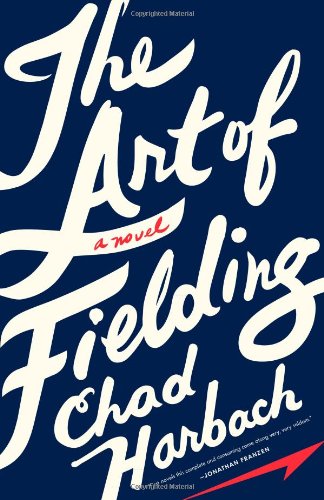★★★★ // ★★★★★
♫♫♫♫♪ // ♫♫♫♫♫
[16 hours]
Full of beautiful musings on life, literature, family, college and baseball, "The Art of Fielding" follows five characters whose lives intersect at the fictional Westish College: Henry Skrimshander, a shortstop with awe-inspiring talent and a intrinsic love for the game; Mike Schwartz, his best friend and the Westish Harpooners' team captain; Owen Dunne, Henry's "gay mulatto roommate"; Guert Affenlight, the college president; and his recently divorced daughter, Pella.
Though "The Art of Fielding" is essentially a book about baseball (and some people on the fringes of it), it is regardless a work of literary fiction - bringing beauty and a sense of meaning into what goes on on the field, and in addition, bringing on that resonance and discourse with other works of literature (most prominently with Moby Dick, as the fictional school boasts an obsure tie to Herman Melville.)
As first novels tend to do, "The Art of Fielding" has a few weaknesses, though they do not interfere too much with what I took away from the novel as a whole. I thought the development of the "dangerous affair" should have been better developed from Owen's side, and had it been, I would have felt less uneasy and disturbed by the whole affair, though only slightly.
The bottom line: The chatter surrounding this book elevated my expectations too high. Regardless, I thought it was a worthwhile read. Strong, well-defined characters (for the most part). And the baseball talk brought on a sense of nostalgia for me, having grown up following my brother's traveling baseball team around the midwest.
Holter Graham, the audiobook reader, really made the novel come alive for me. As far as audiobook readers go, I group them into four categories: one, the ones I absolutely cannot stand; two, those whose voices interfere with the story in a minor sort of way - unclear, distracting, annoying; three, those who disappear into the story; and four, those who add a little something extra to the experience of the work. I would place Holter Graham's reading just between the third and forth categories.
--
“Maybe it wasn’t even baseball that he loved but only this idea of perfection, a perfectly simple life in which every move had meaning, and baseball was just the medium through which he could make that happen.”
